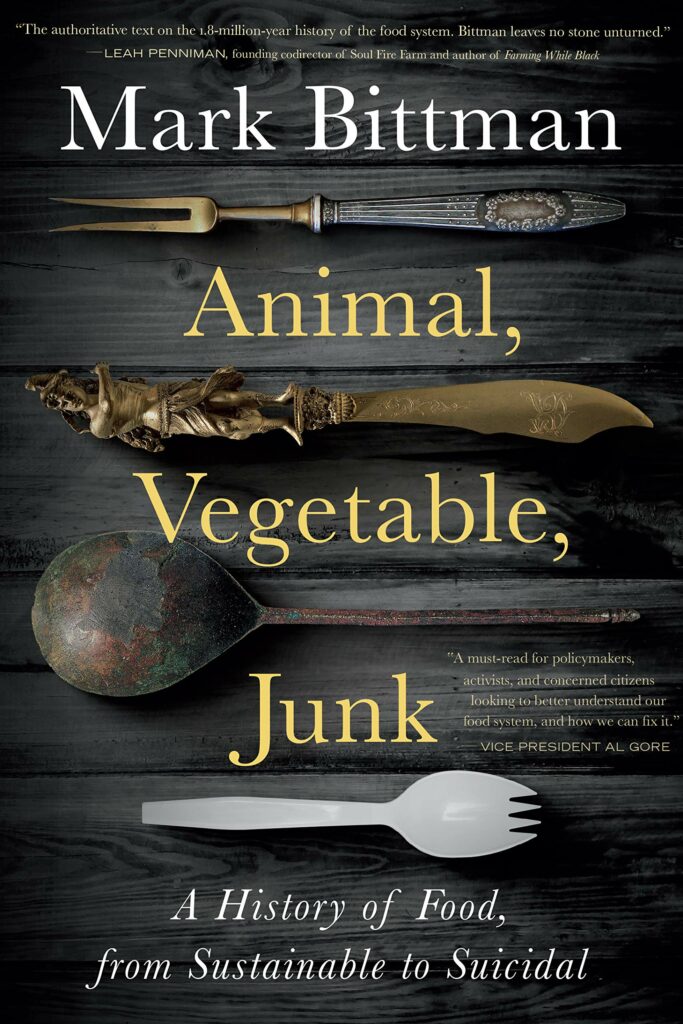
A History of Food, from Sustainable to Suicidal”
By Mark Bittman
Harvest Publications, 2021
384 pages, hardcover, $28
What would a just food system look like? This question is at the heart of Mark Bittman’s newest book, “Animal, Vegetable, Junk: A History of Food, from Sustainable to Suicidal.” Before he attempts an answer, Bittman brings readers on an epic journey through the history of food, from ancient Mesopotamia to the current COVID-19 pandemic. Along the way, he examines the industrial food system and expertly reveals the links between agriculture, social justice and environmental justice.
Organic farmers will appreciate Bittman’s attention to soil, as he sets the stage with its significance, writing: “Without care, using soil will kill it. The health of society also depends on that care, which ultimately is the job of the farmer, the land’s steward … Soil and the people who work it are the foundation of a thriving society.”
In the chapters that follow, Bittman illustrates how the rise of industrial agriculture took agency away from farmers and put power in the hands of monarchies, then brokers, chemical companies and manufacturers who push for profits at the expense of soil and humans alike.
Tracing the history of the spice trade, the U.K. conquest over China and India, and European exploitation of the Americas, Bittman exposes how our modern food system was built upon war, genocide and slavery. “What began as a brutal way to produce food for the rich helped establish a pattern of global food production that became the norm,” he writes.
It’s common today to hear that our food system is broken, but Bittman brings us back to the beginnings of the USDA and shows how our current system is functioning exactly as it was planned: to increase profit for industry. Of the USDA, Bittman writes, “Its first loyalty has always been to the ag/food industry and to destroying any knowledge that would jeopardize the industry’s profits.”
The willingness to acknowledge racism, genocide and environmental destruction gives this book a particularly honest foundation from which to rise up. Despite the damages of industrial agriculture, there are examples of sustainable, regenerative and nourishing systems, too. From that, Bittman carries a strand of persistent hope and belief in the ability to do better.
He doesn’t present one conclusive answer to what a just food system looks like. He leaves that up to all of us, knowing that a just system is created by many instead of a few. And in that, he does offer a look into agroecological farming that doesn’t need to be global in scale in order to meet the needs of humans world-wide.
“People talk about ‘scaling up,’ but that really isn’t the answer; it’s more about scaling out, replicating small- and medium-scale sustainable systems in millions of places worldwide. In this way we can begin to transform and replace the industrial agricultural system.”
Told with unflinching honesty, detailed research and the ability to bring history alive in a compelling and compassionate way, this book is a must-read for every farmer, activist and policy maker.
Katie Spring, Good Heart Farmstead, L3C, Worcester, Vermont
